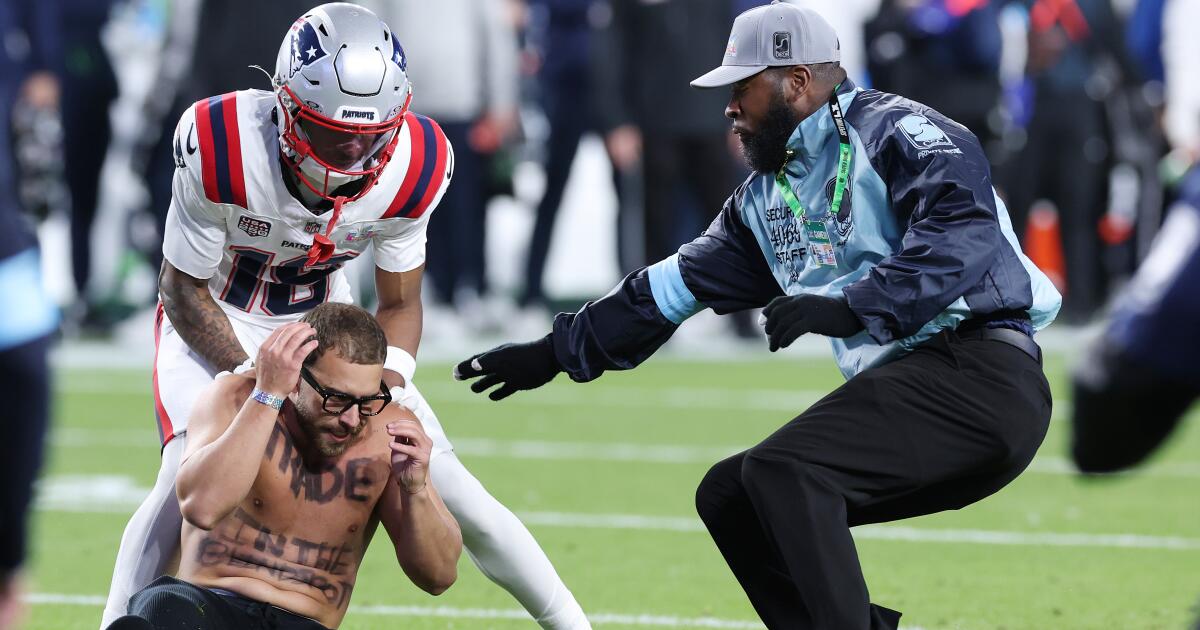So-called streakers reveal identities after Super Bowl arrests
Super Bowl LX was mainly a defensive struggle.
Until the fourth quarter, the only points scored were four field goals by Seattle Seahawks kicker Jason Myers.
Many people have expressed the opinion that Seattle’s 29-13 victory over the New England Patriots was pretty much a snoozefest.
Those people, however, probably did not see one of the most exciting parts of the game because NBC did not show it on the TV broadcast.
Early in the fourth quarter, two men attempted to run onto the field, and one of them was successful.
According to the Santa Clara Police Department, Alex Gonzalez, 25, and Sebastian Rivera Jimenez, 24, were arrested at the stadium during the game for allegedly trespassing and field incursion.
Videos posted on social media by fans show that one of the alleged trespassers entered the playing area at around midfield. He ran between a pair of officials, one of whom dived after him and missed, then took off toward the end zone.
He made it near the 10-yard line, with Patriots rookie receiver Kyle Williams in pursuit at one point, before sliding to a stop. Although he’s being referred to by many as a “streaker,” the man was dressed from the waist down.
Numerous messages were painted on the man’s torso, including “@fxalexg,” which is the social media handle of public investor Alex Gonzalez. On Monday, Gonzalez posted a video to TikTok of someone, presumably himself, at the Super Bowl wearing dark glasses and a long, extremely fake-looking beard.
“This was Fxalexg disguise to streak the Super Bowl,” the caption reads.
Gonzalez added in the comments, “They never saw it coming.”
While NBC did not show the incident, announcer Mike Tirico said, in explaining the brief stoppage of play, “We have some rocket scientist running around the field.”
Gonzalez allegedly pulled off a similar stunt two years ago during Super Bowl LVIII at Allegiant Stadium in Las Vegas, according to multiple media outlets.
A man named Sebastian Rivera Jimenez, who identifies himself as a filmmaker in his Instagram bio, posted a few videos on his Instagram Story that appear tied to one of the incidents. One video appears to show him wearing a fake, blue mustache while enjoying Bad Bunny’s halftime show from a front row in the stands. Other videos appear to show him being held to the ground and then taken away by security before he could make it onto the field.
“Most viral moment,” one of the captions reads. “Ill send you an invoice @nfl.”
